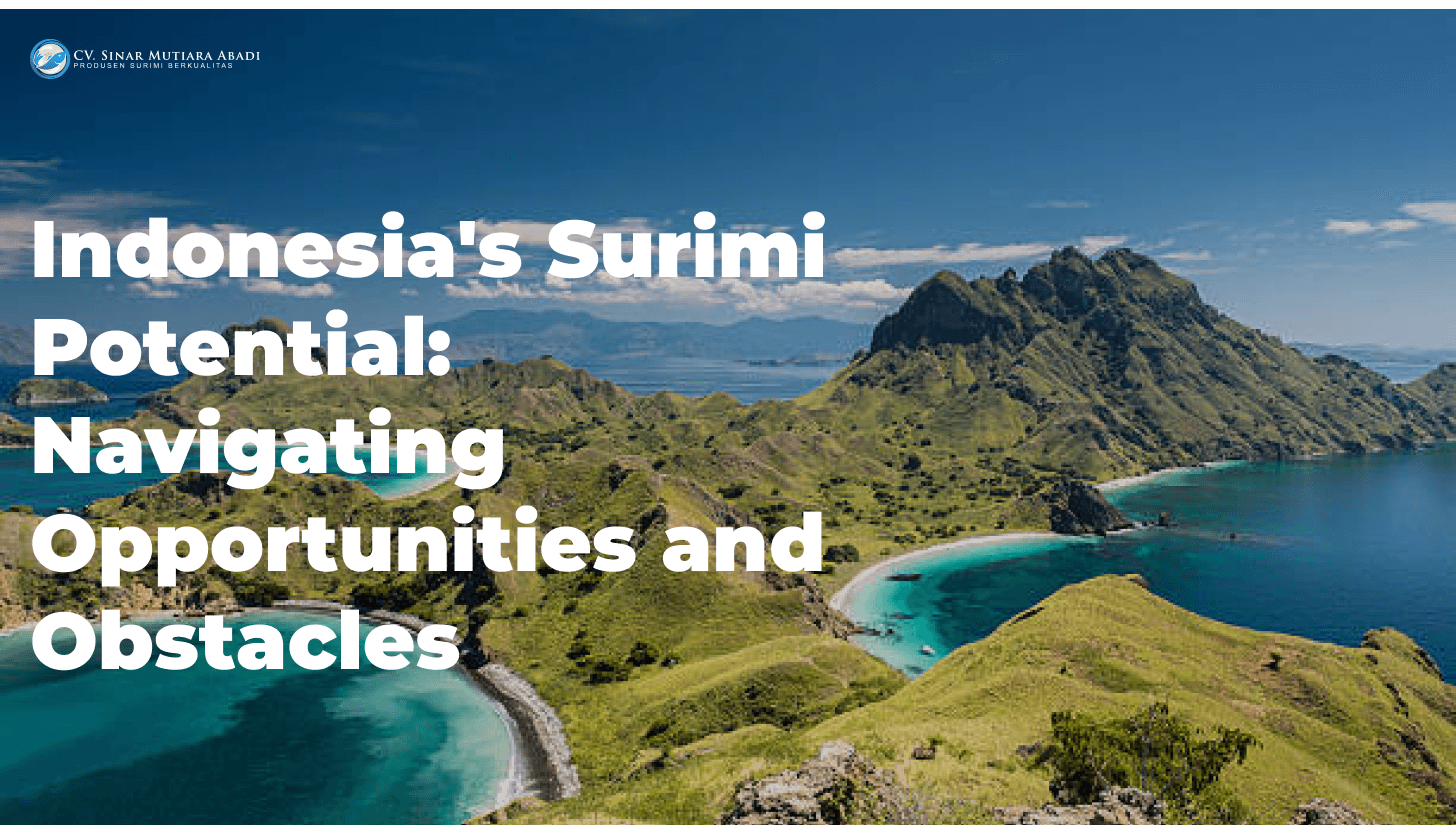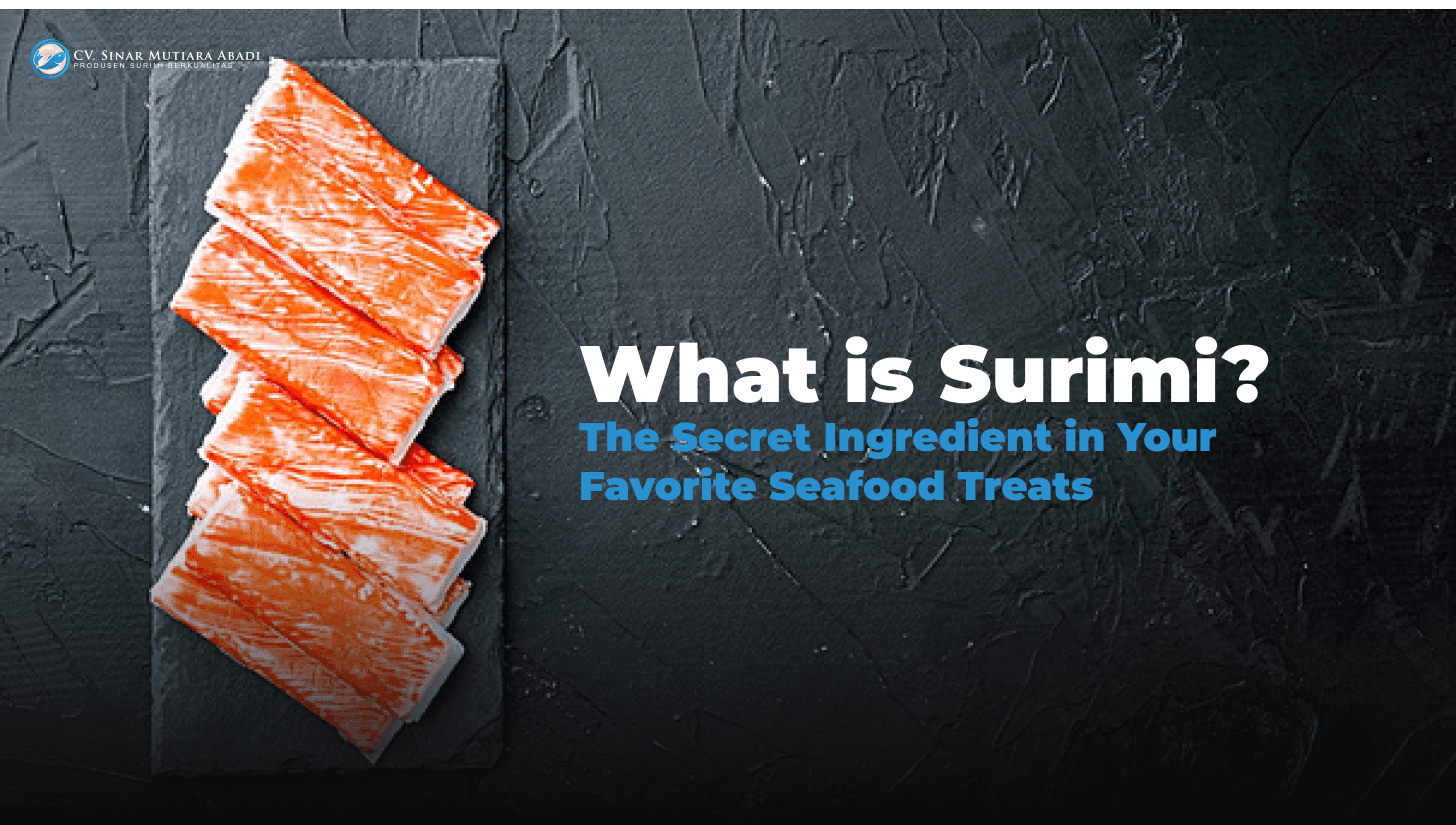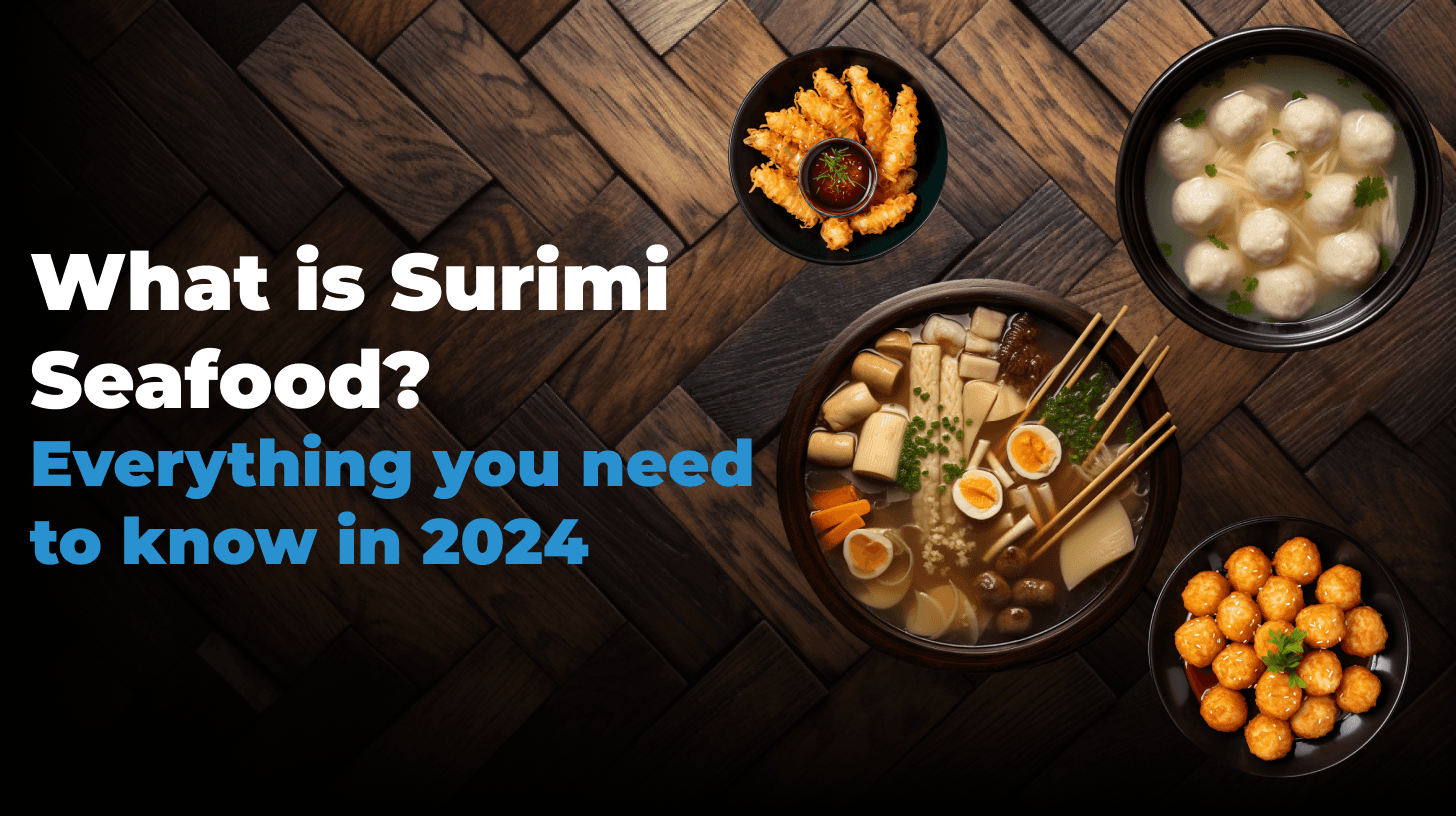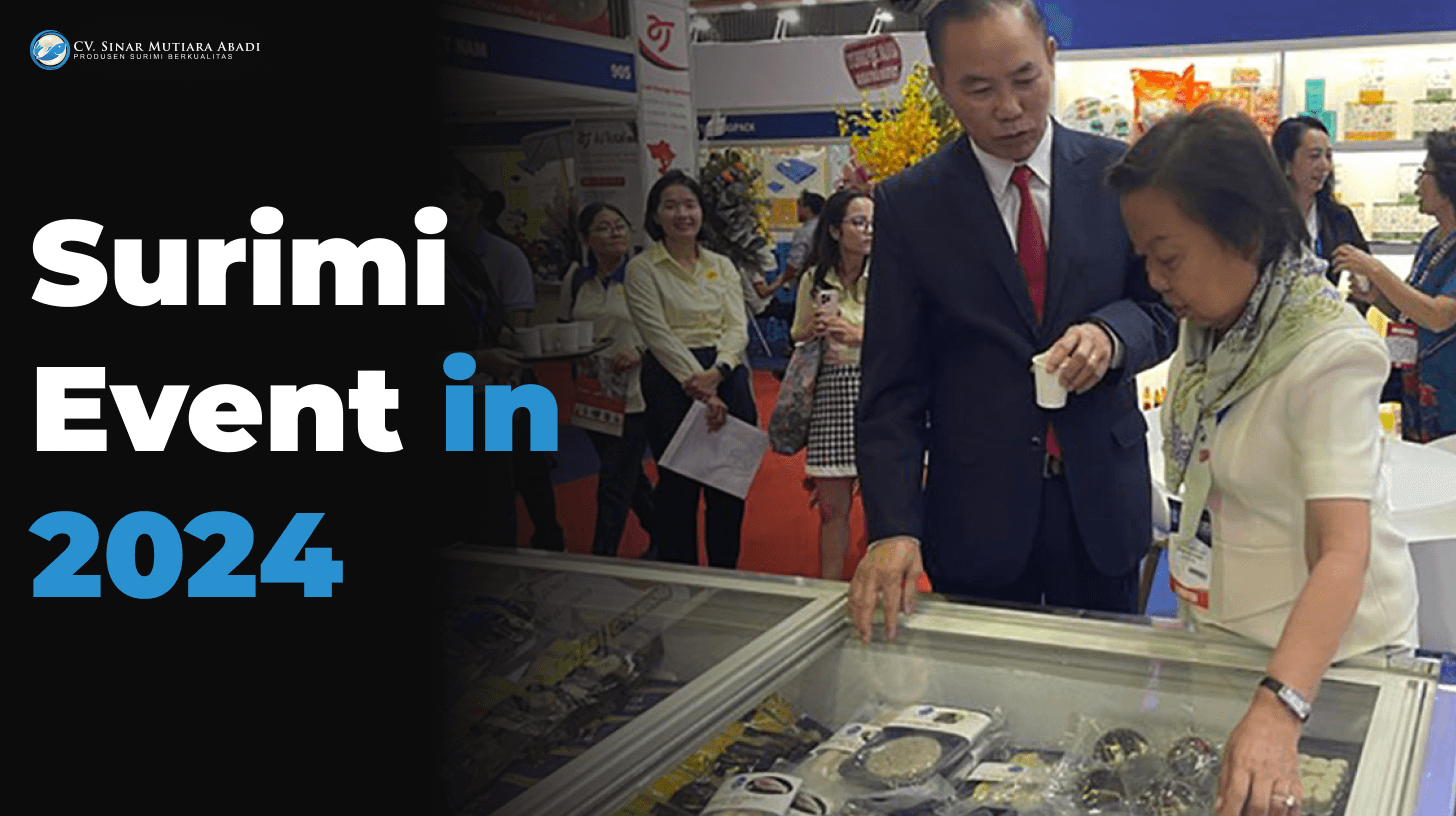Aug 4, 2024
The surimi industry in Indonesia has proved to have taken a step toward making a global impact within the industry through its initiative for local innovation.
Surimi is a minced fish meat that goes through the process of being washed, refined, and mixed with cryoprotectants. From surimi itself, other seafood products, such as crab sticks, fish balls, and chikuwa, can be produced.
Surimi has become more popular in recent years as a healthy option for seafood products. The demand for surimi in the global market has been rising, especially in high seafood consumption countries, including Japan, China, South Korea, and the United States.
In the surimi industry, Indonesia has an important role as one of the tropical surimi producers in Southeast Asia. With its rich marine resources, Indonesia has the chance to stand out as the representation of Southeast Asian surimi producers to fulfill the global demand for seafood.
Find how the surimi industry in Indonesia has been improving through its production, market influence, as well as innovative efforts applied to support sustainability implementation.
Surimi Production in Indonesia

Surimi production in Indonesia has been taking a role in the global surimi market. The production of surimi in Indonesia relies heavily on tropical fish, representing the Southeast Asia surimi industry.
In the early 2000s, Indonesia’s surimi industry started processing 10,000–12,000 MT of surimi, and most of the production was exported to countries like Korea, Japan, Singapore, and Taiwan.
Even so, research has shown that the production using tropical species in Indonesia was 14,230, with threadfin bream as the most tropical species used as the raw material. This number was estimated to be the lowest production since 2015.
Despite this, the surimi industry in Indonesia still has a high potential to keep expanding and actively contributing to the global market as the global demand for seafood products rises.
With the extensive marine resources, surimi production in Indonesia could fulfill the rising demand for seafood products and keep exporting surimi as well as surimi seafood products like crab sticks, especially to countries with high seafood consumption, encouraging positive growth for the surimi industry in Indonesia.
Indonesia’s Market Influence
Indonesia’s surimi production capacity and strategic market influence make Indonesia hold an important position within the Southeast Asian surimi industry.
The number of surimi processing plants in Indonesia has been increasing since 2015, with a production capacity of about 167,000 metric tons per year. These processing plants are mostly located in the northern part of Java, contributing significantly to the overall surimi production capacity in Indonesia.
Though the surimi industry faced a decline in surimi production in recent years, looking ahead, Indonesia’s surimi sector still shows promising growth potential through the global demand for seafood products. In this case, Indonesia is well-positioned to expand its market share.
Fun Fact: Research shows that China’s imports from Indonesia increased in 2023, even though the number was not as high as in 2020.
Indonesia’s Surimi Innovation

Innovation is the key to the growth and success of Indonesia’s surimi industry through active surimi production, contributing to the global market.
Indonesian surimi producers have shown their strong loyalty to boosting the industry forward by using advanced processing methods.
The use of contemporary technology by surimi producers in the nation to enhance the taste and texture of the products is evidence of this. They also use advanced methods, such as freezing techniques, to make the surimi remain fresh.
With such improvement, Indonesia provides surimi products that have a positive value in the global market. This also keeps the door of partnership wide open for both local producers and international distributors.
Surimi Quality Standards in Indonesia
The commitment of Indonesian surimi producers to make a safe and high-quality product has been proven through their willingness to get certifications for their company, ensuring a safety guarantee for the consumers.
The first certification that surimi producers in Indonesia must have is the Halal certification. By holding the Halal standards, surimi producers ensure that surimi produced is permissible for Muslim consumers, who are the majority in the country.
There are other certifications that most surimi producers hold, such as the Hazard Analysis and Critical Control Points (HACCP) and Good Manufacturing Certification (GMP), which Sinar Mutiara Abadi, one of the surimi producers in Indonesia, has already obtained.
With these certifications and the guidelines by the government, Indonesia’s surimi industry has met the credibility for high quality products and guaranteed its safety.
Surimi Sustainability in Indonesia

Indonesian surimi producers are deeply committed to adhering to the applicable laws and regulations, which include sustainability implementation. This commitment consists of responsible fishing practices, following environmental regulations, as well as active community engagement.
1. Fishing Practices
The media has pretty much acknowledged the fact that Indonesia's fishing industry is still working toward ethical fishing methods. However, surimi producers have taken significant steps for sustainability.
Many surimi producers in Indonesia have shown their effort by adopting responsible fishing practices. This shows that surimi producers in this country do not only initiatively care for sustainability, but also surimi quality through maintaining the fish population as well as marine biodiversity.
2. Environmental Regulations
All Indonesian surimi producers must operate under the environmental regulations of the Ministry of Marine Affairs and Fisheries. This regulation includes sustainable sourcing of raw materials as part of the country’s efforts to attain the Sustainable Development Goals (SDGs).
For Indonesia’s surimi industry, operating under environmental regulations will not only help the country to take a step ahead toward the SDGs but also give the industry a positive image in the global market.
3. Community Engagements
In another effort to implement sustainability within the surimi industry, many Indonesian surimi producers collaborate with local fishermen to promote responsible and sustainable fishing practices.
Conclusion
With local innovations, the surimi industry in Indonesia can drive a positive impact on the surimi global market.
Even though the fact that rising the recent number of surimi production is more challenging, Indonesian surimi producers still have the potential for growth by utilizing the richness of marine resources effectively with a strategic market influence.
The commitment of Indonesia’s surimi industry to prioritize high-quality products and sustainability standards will lead the country to continue expanding and strengthening its position as one of the key tropical surimi producers in the surimi global market.

Adress: Gajah Mada KM 4, Banyudono, Kaliori, Rembang 59252
Phone Number: +62 822 98989 169
E-mail: marketing@sinarmutiaraabadi.co



